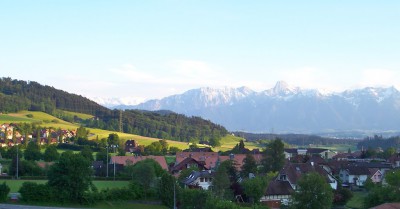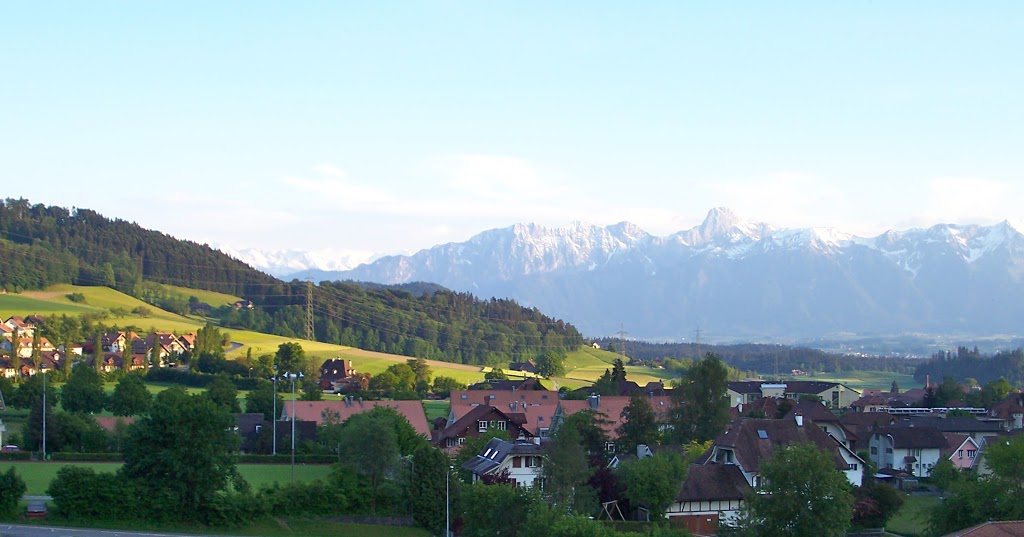The problem of sanctity and salvation is in fact the problem of finding out who I am and of discovering my true self. ~ Thomas Merton
Last week I delivered my 111th author talk since my book was published. (I love the symmetry of the fact that there were 111 people at the talk.) There is one question that comes up quite often that people seem to be reticent to just come out and ask it, given the personal nature of it, yet their curiosity gets them over any inhibitions they might have. The question is phrased in all different ways, but the meaning is the same. They want to know what religion I am now.
Until I had published my book, I often felt uncomfortable being asked about my spiritual beliefs by people I didn’t know very well. I had to get over that, considering I’ve been asked it so many times. The answer is not a concise or clear one, because I am still on a spiritual quest that I imagine will last the rest of my life.
When I left the Amish, I only saw what I felt is the punitive nature of their religion — one belief in particular posed a problem for me. I was taught, from the time I could understand the concept that because I was born Amish, God wanted me to stay Amish, and if I left, all hope of my salvation would be lost. This belief was reinforced with fire and brimstone sermons.
Though I would not have been able to articulate this at the time, I wanted to move beyond the fear of Hell fire as a spiritual motivator and focus more on mercy, grace, peace, love, joy, gratitude. The second time I left the Amish, I began a search for a church community that would feel right for me. After visiting many churches in Burlington, I found one that I felt at home in — a Presbyterian congregation — which is where David and I were married and where we attended for years. Then the minister — who I revered very much — had an affair with a younger woman in the church. She was the mother of two, and he was the father of five. That threw me for a loop and for the next several years, I felt more or less rudderless. I started questioning who God is and began searching for answers in the “New Age” realm. I didn’t know it at the time, but this was the beginning of my search for universal truths and messages in various religions, mythology, and philosophy. I discovered Joseph Campbell and there began my love of mythology. These larger-than-life epic stories of gods, saints, and people throughout the ages speak to me.
Gradually, as my search continued, I discovered that I had an innate belief that there is something greater than us — our world and our universe just don’t make sense without that. The Native American idea of the Great Spirit (God) and Mother Earth (Nature) were the best words to describe what I felt this was. I also discovered that not all my spiritual nurturing comes from being in church. There have been times when I felt really close to God through nature, whether it was watching a male bluebird sidling up to his mate to feed her on one of the lower branches of the birch tree outside my window, watching an eagle soar above the Connecticut River, or seeing the grandeur of the Swiss Alps.
 |
| Photo by me in Oberdiesbach, Switzerland |
Okay, so I believe God exists, but that still does not make me a Christian. Most self-defining Christians believe in Jesus Christ as their Savior. And this is where I come back to the less punitive beliefs of my Amish roots. In my home community, we did believe that Jesus came to earth and died on the cross so that we may have everlasting life. However, it is Jesus on earth or Jesus as human with whom the Amish identify. Rather than going out and spreading the gospel of Christ, as many born-again Christians do, the Amish believe in living the example of Christ. I believe that Jesus knew his purpose for having been born on this earth and that he lived his life in accord with that purpose. I also believe we have the innate ability to know when we are living our purpose.
I find the Christ story a powerful and inspiring one from which I can draw life lessons and live my life accordingly. But I do not profess to be a born-again Christian. I think asking Christ to wash my sins white as snow again and again is avoiding my responsibility for making restitution for the wrongs I’ve committed (if possible) and for learning from these mistakes by refraining from repeating them.David and I continue our shared search for a spiritual community. Over the years we’ve visited churches in many denominations — Amish, Mennonite, Roman Catholic, Quaker, Presbyterian, Episcopal, Lutheran, Church of Christ, Unitarian, Methodist, Congregational. If we could have aspects of these various communities all in one, we would choose the introspection of the Quakers; the joyful singing of the Episcopalian Church that had an interracial choir capable of raising the roof each Sunday; the contemplative quiet and music of the Unitarian Church, the sense of community of the Mennonites; and the humility of the Amish, symbolized in the age-old ritual of footwashing. But we cannot have it all, and so we visit various churches and continue our spiritual quest.Maybe next time I get asked this question, I should be more concise and use the term that a friend who was raised in a Jewish and Quaker home used — she described herself as “Quakish.”



You are very honest.Thank you for this post.
I am actually considering a blog where I explore the very topic you explored so concisely in this post. Great read, thanks so much for sharing!
This is such a personel issue. Your explanation makes so much sense. Your humility and honesty are so refreshing. Very well said. Vicki
“Quakish” – now there’s a word I’ve never heard! Thanks for sharing your thoughts and helping us get to know you better, Saloma.
Hope the speaking engagement in Avalon went well. I was thinking of you.
Have a wonderful rest of the week,
Karen
Lovely post. Jack and I are struggling as well where to worship. I pray you and David as well as jack and I can figure it out!
Thanks for sharing. I went to some different churches now and again with others, but I did not grow up in a church. (Though was infant baptized into one.) I’m agnostic and it’s taken me a long time just to come to and accept that conclusion no matter how much I wanted to believe. I just can’t wrap my mind completely around either belief (God or no God?). I do like that Native American idea you mentioned.
I can really identify with a continuing journey of faith and spirituality that you described. If we don’t grow in our faith, then it might as well be dead. Also, this is a road that is different for everyone. I echo Katie’s thoughts about your honesty.
I know exactly what you mean…I was born and raised in a strict Fundamental Baptist Church. Upon graduation, from the school in the basement of the church, I left the church. I did not agree with a lot of doctrine that the Baptist church has it’s basis in. Since then I have been drifting, I believe in God, I do consider myself a born again Christian, but I tend to lean toward seeing God in nature as the Native Americans do. I also like the sense of community and peacefulness that the (i thought) Amish portrayed. Reading your blog and a few others has opened my eyes to the fallacies that exist in that belief. I guess I identify myself as non-denominational, because I will never agree with any ONE denominations version of things…I prefer to read and interpret the Bible for myself, what it says to ME, not the guy yelling at me from the front of the room.
Hi, I just found your blog and was wondering whether Amish are familiar or not with philosophy? (but I think I know the answer:))
After reading this post I thought maybe you would like to inquire about RCIA classes as Mass probably wouldn’t make much sense to you without it coming from an Amish/Protestant background, but what do I know?!:)
Saloma, it’s refreshing to hear how open you are to new spiritual experiences and how you ably evaluate them. I’ve been a spiritual seeker much like you since I left home for college in 1972. I’ve visited lots of different “churches” and pretty much entertained the full range of “new age” gamut from college classmates.
Since around 1998 or so, I’ve studied the eastern church (“eastern orthodoxy”) and attended for a few years from then until around 2001-2 before moving 100 mi. away from major cities to my parents retirement acreage. For over a decade, I’ve been researching “Orthodoxy” and modern culture, and hope to use what I find to produce a study about how many/most of the social principles of the “low” sectarian church, such as the Amish, might be combined with Orthodox Christian teaching, which I think could make for possibility of much more positive expression, than the way those principles have been historically expressed among the Amish.
From my reading, I’ve found a depth of Christian teaching unlike anything I’ve encountered anywhere else, perhaps because the eastern church preserved much of the Hellenic culture in which Christianity originally developed, as opposed to the “latin” culture that developed in western Europe by way of Germanic Frankish infiltrators of the Church of Rome.
When inquirers ask about the Orthodox Church, the response is usually “Come and See”. I think any spiritual seeker owes it to themselves to do just that. At least I’d be interested in your reaction, and would also like to know if you would be willing to answer some questions I have or give me some feedback on my research as it unfolds. I can be reached at the email address on my website – Life Giving Spring.
If you decide to visit, I encourage you to visit more than one Orthodox parish. I recommend the Orthodox Church in America or an Antiochian Orthodox Church parish because those parishes are more likely not to have pews, especially the OCA parishes, and the experience is much more as originally intended without them. Pews are a form of “westernization” and you typically find those in all the Greek parishes, and sometimes in the Antiochian and other parishes. The OCA is typically more ethnically pluralistic. The Antiochian parishes run a close second in that regard, while the Greek, Russian, Serbian and Romanian parishes are more ethnically homogenous typically.
you are gentle man.thanks for sharing this post
Saloma – I have found your honesty and open-mindedness refreshing since day 1, which I why I continue to visit here.
I have found that religion and spirituality are 2 different things & many people do seem to have 1 without the other. Ideally, I think these things should somehow work together in our lives, but sometimes they just don’t.
You’ve expressed a lot of my feelings, although I have not physically done as much searching as you have. I am ALWAYS mentally searching, however, & I somehow think this is what we are meant to do, because we, and all around us, continue to change and hopefully grow. There is no “one size fits all” & I’ve reached the conclusion that the Greater Power (God) is with us on our search and all the different religions and denominations certainly provide a home base for many.I also think that churches provide a sense of community which keeps people involved, even more than their “religiosity.”
Purity of heart and intent do matter, and in that area you are doing just fine. So search on – when you find the perfect fit for you & David you will know it.